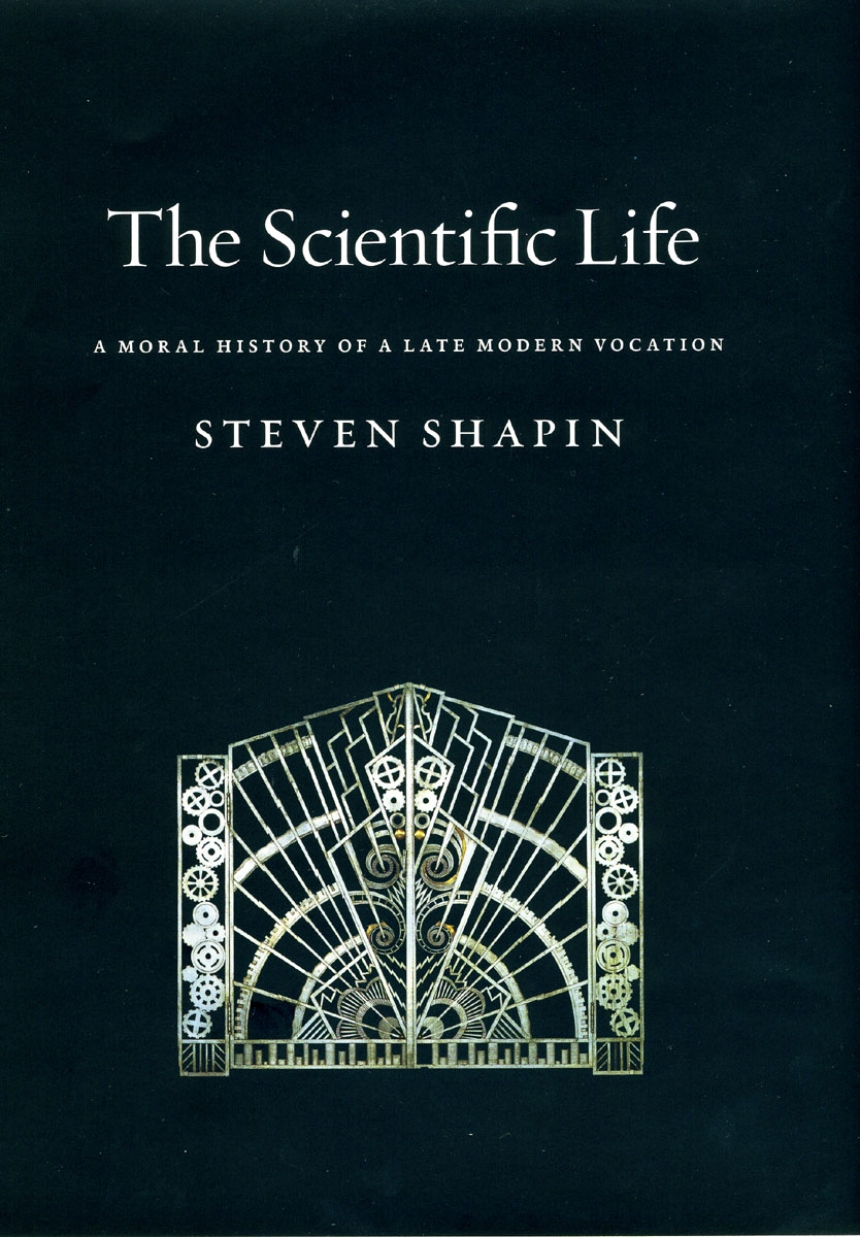The Scientific Life
A Moral History of a Late Modern Vocation
9780226750255
9780226750248
9780226750170
The Scientific Life
A Moral History of a Late Modern Vocation
Who are scientists? What kind of people are they? What capacities and virtues are thought to stand behind their considerable authority? They are experts—indeed, highly respected experts—authorized to describe and interpret the natural world and widely trusted to help transform knowledge into power and profit. But are they morally different from other people? The Scientific Life is historian Steven Shapin’s story about who scientists are, who we think they are, and why our sensibilities about such things matter.
Conventional wisdom has long held that scientists are neither better nor worse than anyone else, that personal virtue does not necessarily accompany technical expertise, and that scientific practice is profoundly impersonal. Shapin, however, here shows how the uncertainties attending scientific research make the virtues of individual researchers intrinsic to scientific work. From the early twentieth-century origins of corporate research laboratories to the high-flying scientific entrepreneurship of the present, Shapin argues that the radical uncertainties of much contemporary science have made personal virtues more central to its practice than ever before, and he also reveals how radically novel aspects of late modern science have unexpectedly deep historical roots. His elegantly conceived history of the scientific career and character ultimately encourages us to reconsider the very nature of the technical and moral worlds in which we now live.
Building on the insights of Shapin’s last three influential books, featuring an utterly fascinating cast of characters, and brimming with bold and original claims, The Scientific Life is essential reading for anyone wanting to reflect on late modern American culture and how it has been shaped.
Conventional wisdom has long held that scientists are neither better nor worse than anyone else, that personal virtue does not necessarily accompany technical expertise, and that scientific practice is profoundly impersonal. Shapin, however, here shows how the uncertainties attending scientific research make the virtues of individual researchers intrinsic to scientific work. From the early twentieth-century origins of corporate research laboratories to the high-flying scientific entrepreneurship of the present, Shapin argues that the radical uncertainties of much contemporary science have made personal virtues more central to its practice than ever before, and he also reveals how radically novel aspects of late modern science have unexpectedly deep historical roots. His elegantly conceived history of the scientific career and character ultimately encourages us to reconsider the very nature of the technical and moral worlds in which we now live.
Building on the insights of Shapin’s last three influential books, featuring an utterly fascinating cast of characters, and brimming with bold and original claims, The Scientific Life is essential reading for anyone wanting to reflect on late modern American culture and how it has been shaped.
Read an interview with the author. Listen to an audio interview.
488 pages | 16 halftones, 2 line drawings | 6 x 9 | © 2008
Education: Higher Education
History: History of Ideas
Reviews
Table of Contents
List of Illustrations
Acknowledgments
Preface
1 Knowledge and Virtue
The Way We Live Now
2 From Calling to Job
Nature, Truth, Method, and Vocation from the Seventeenth to the Nineteenth Centuries
3 The Moral Equivalence of the Scientist
A History of the Very Idea
4 Who Is the Industrial Scientist?
The View from the Tower
5 Who Is the Industrial Scientist?
The View from the Managers
6 The Scientist and the Civic Virtues
The Moral Life of Organized Science
7 The Scientific Entrepreneur
Money, Motives, and the Place of Virtue
8 Visions of the Future
Uncertainty and Virtue in the World of High-Tech and Venture Capital
The Way We Live Now
Epilogue
Notes
Bibliography
Index
Acknowledgments
Preface
1 Knowledge and Virtue
The Way We Live Now
2 From Calling to Job
Nature, Truth, Method, and Vocation from the Seventeenth to the Nineteenth Centuries
3 The Moral Equivalence of the Scientist
A History of the Very Idea
4 Who Is the Industrial Scientist?
The View from the Tower
5 Who Is the Industrial Scientist?
The View from the Managers
6 The Scientist and the Civic Virtues
The Moral Life of Organized Science
7 The Scientific Entrepreneur
Money, Motives, and the Place of Virtue
8 Visions of the Future
Uncertainty and Virtue in the World of High-Tech and Venture Capital
The Way We Live Now
Epilogue
Notes
Bibliography
Index
